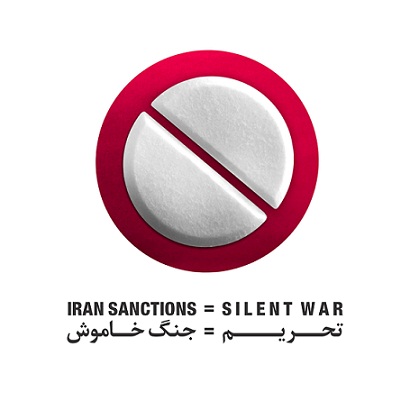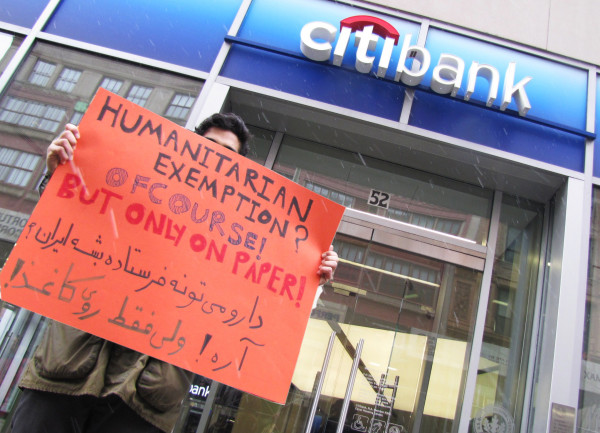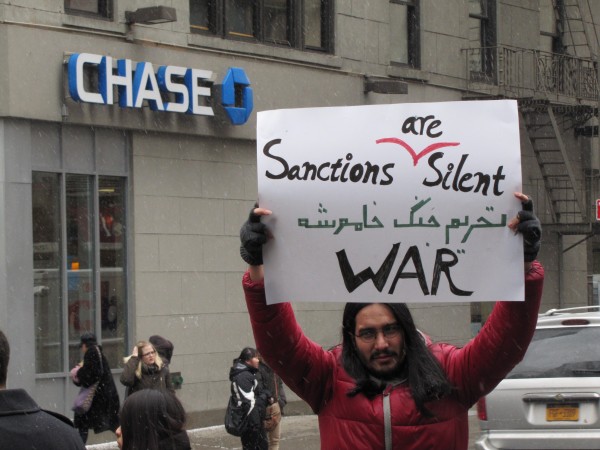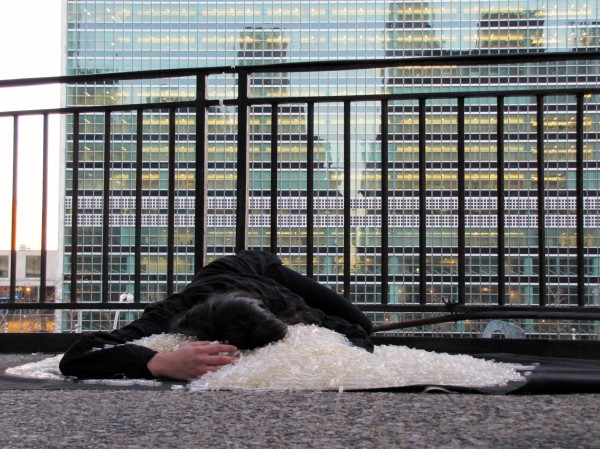A Havaar forum hosted by the Center for Place, Culture and Politics.
Sanctions are still presented in mainstream political discussion as a peaceful alternative to military intervention. But the experience of Iraqis, whose society was devastated by over ten years of harsh economic sanctions, shows us that sanctions against countries that defy Washington are a form of collective punishment used to augment the effects of war and/or lay the groundwork for war. While sanctions against Iran have yet to reach the levels and effects experienced in Iraq, there is much to be learned by placing these two different cases in a common frame. How are sanctions used by the US as part of its efforts to dominate the Middle East? What are the effects they have on everyday life and on social movements? And how have activists attempted to organize transnational solidarity to oppose sanctions? This event will look at previous campaigns against sanctions in Iraq and help launch a new campaign against the medical shortages caused by sanctions against Iran.
Speakers:
Dr. Joy Gordon is a philosophy professor at Fairfield University, JD from Boston University School of Law, PhD from Yale. Published extensively on the UN sanctions on Iraq, including “Invisible War: The United States and the Iraq Sanctions” (Harvard University Press 2010). Currently completing a book on the ethical aspects of economic sanctions. Recent work on the Iran sanctions includes “UN Sanctions on Iran: The Dance of Mutual Deniability“
Denis J. Halliday worked for the UN for 34 years – first as junior officer in Iran (1964-66), and finally as UN Assistant Secretary-General 1994-98. He volunteered to be the United Nations Humanitarian Coordinator in Iraq in 1997 and remained in his post until 1998 when he resigned in protest of the sanctions.
Hadi Kahalzadeh served as an economist for Iran’s Social Security Organization from 2003 to 2011. He was a member of the Iranian Students Office for Consolidating Unity (Daftar-e Tahkim-e Vahdat), the only democratically elected student body across the country. After graduating, he joined the progressive political party, the Iranian Alumni Organization, which was a strong ally of student, women’s rights, and labor movements. In 2006, Hadi was elected as a member of board of directors of Iran Parties House (IPH). He currently serves as a visiting scholar at the department of political science at Valdosta State University in Georgia.
Bitta Mostofi currently is a nonprofit, immigrant rights attorney (you can see it here on ḥow she works). She has also worked as a civil rights attorney and served on the board of directors of the Council on American Islamic Relations. Bitta has participated in anti-war and anti-sanctions campaigns, and was a co-coordinator for the Voices in the Wilderness; Iraq Peace Team from 2002-2003. In recent years Bitta has co-founded and worked with Where is my Vote, New York, which formed in the after math of the highly disputed 2009 Iranian presidential elections. WIMV-NY strives to raise the level of international solidarity with the citizens of Iran in their movement towards social justice and democratic change and to speak out against the Iranian state’s human rights violations.
Sina is a founding member of Havaar: Iranian Initiative Against War, Sanctions and State Repression and an organizer with Havaar’s campaign to alleviate sanctions-related medical shortages in Iran.
Co-sponsored by Havaar: Iranian Initiative Against War, Sanctions and State Repression, Raha Iranian Feminist Collective, the Campaign for Peace and Democracy and the War Resisters League.
Please RSVP to our event posting on Facebook and help us spread the word.







